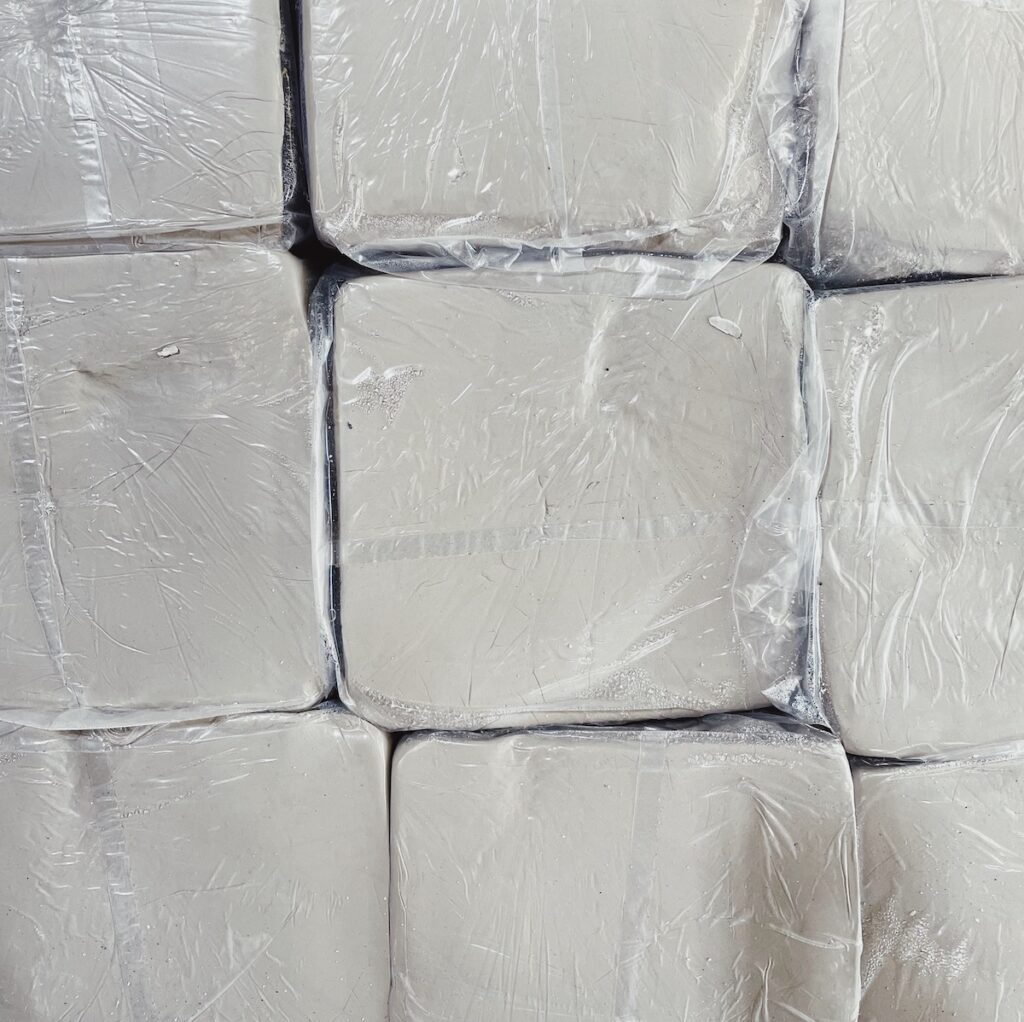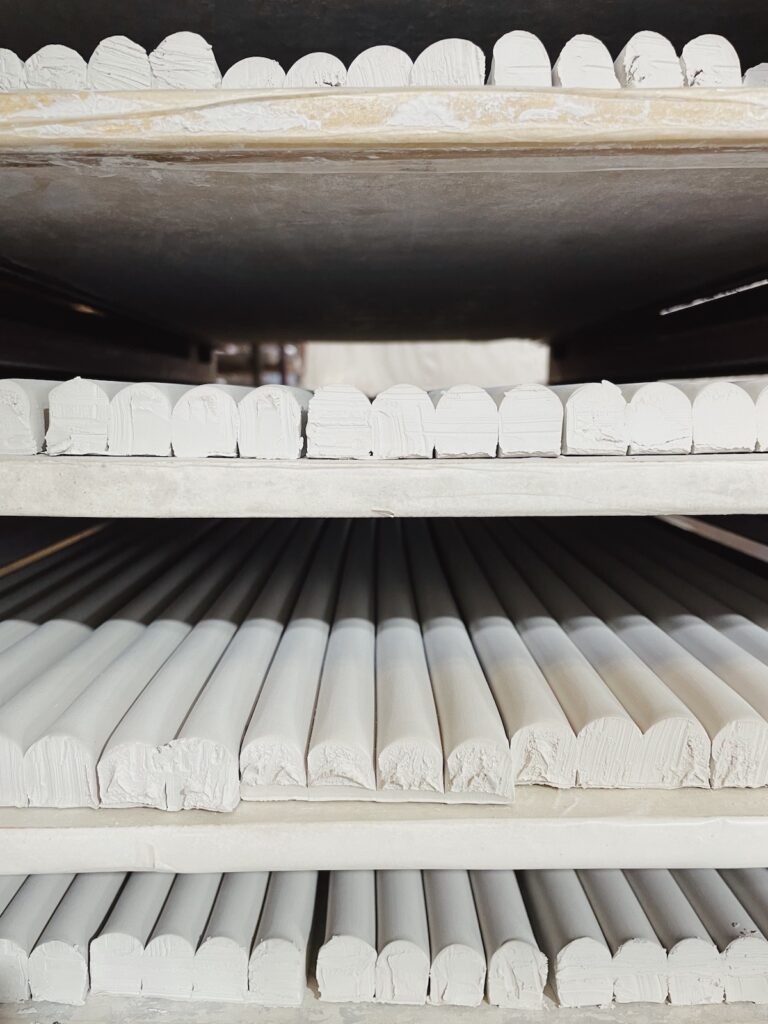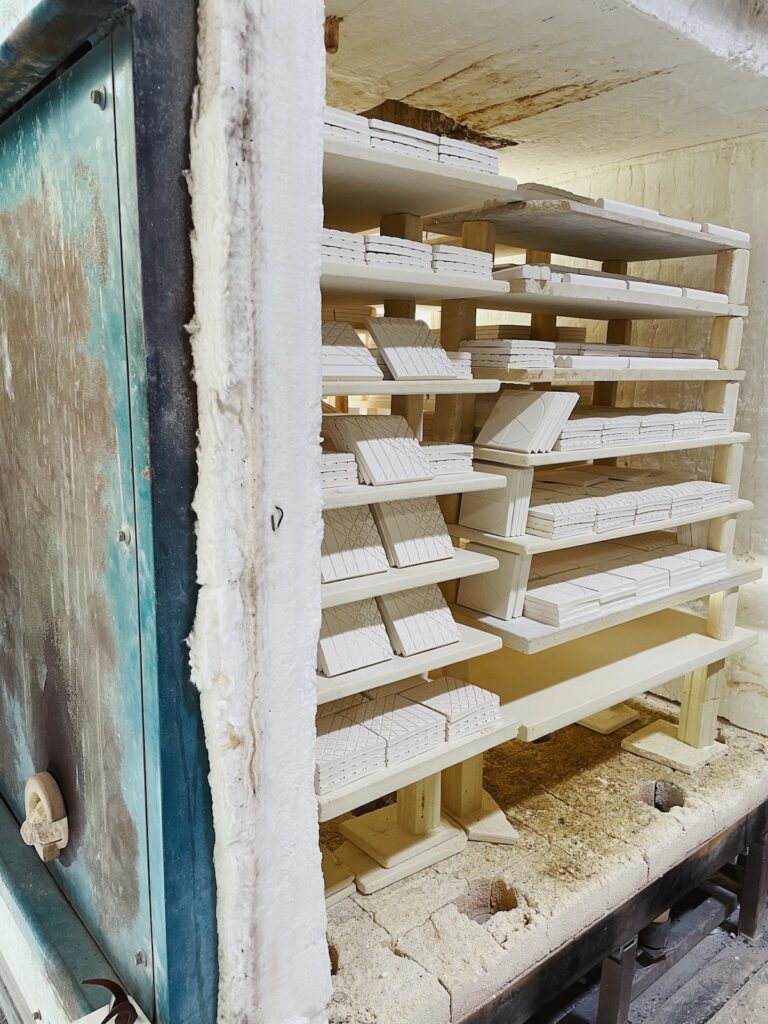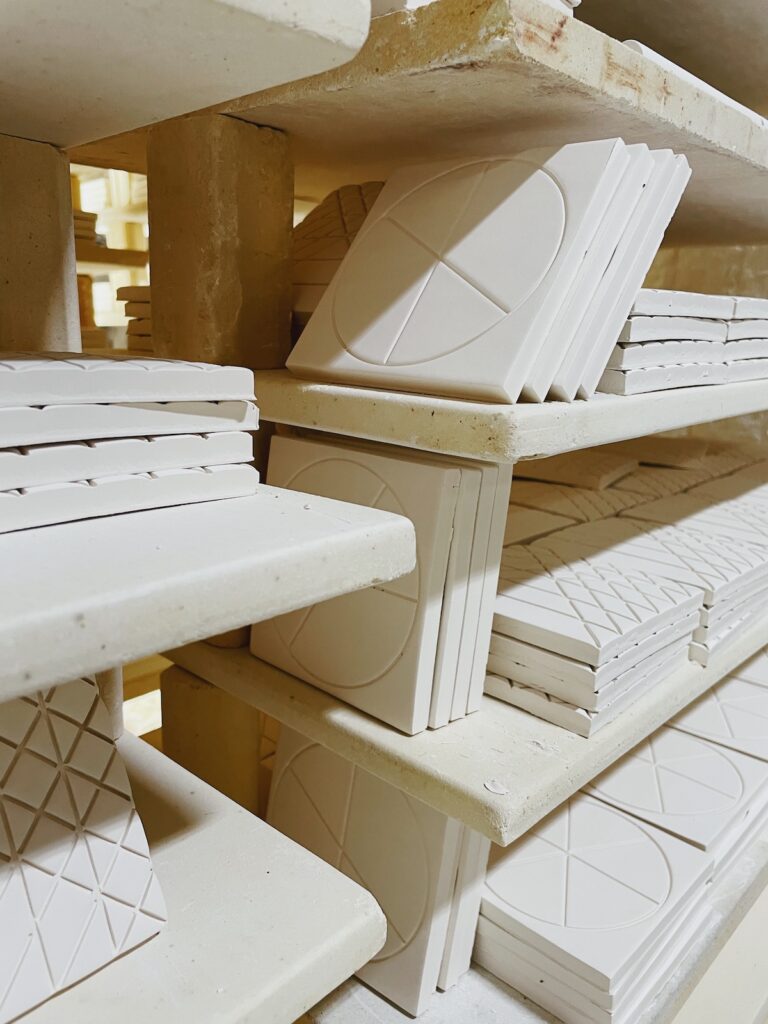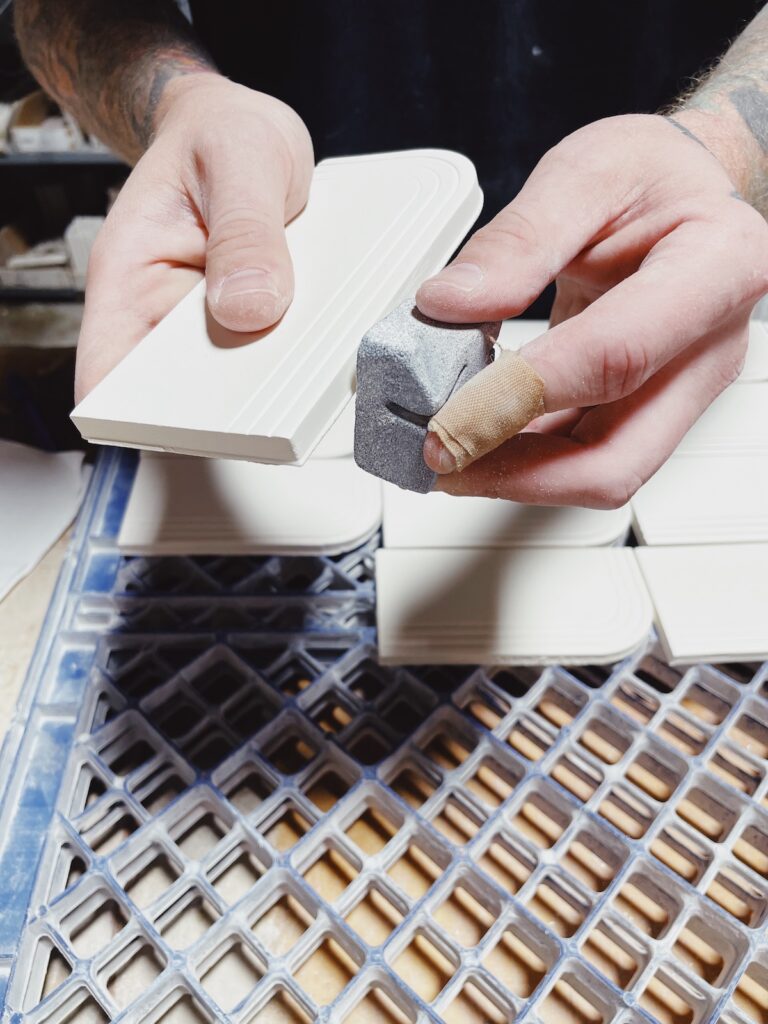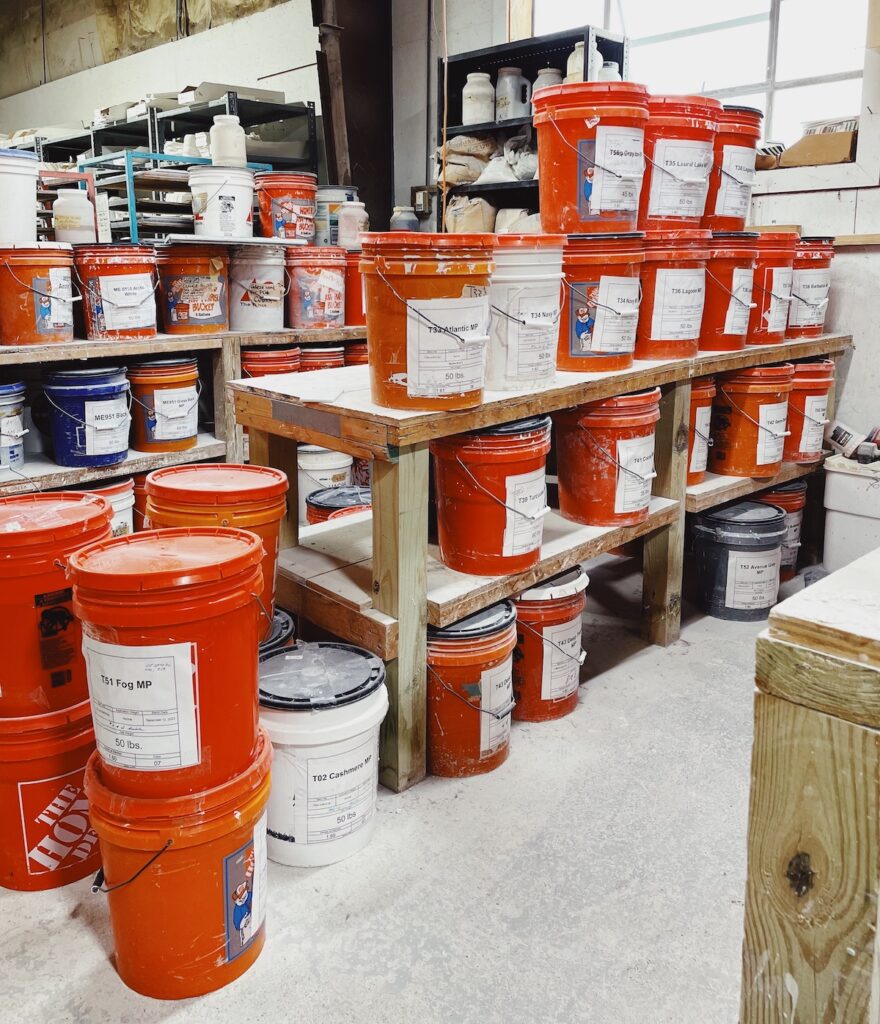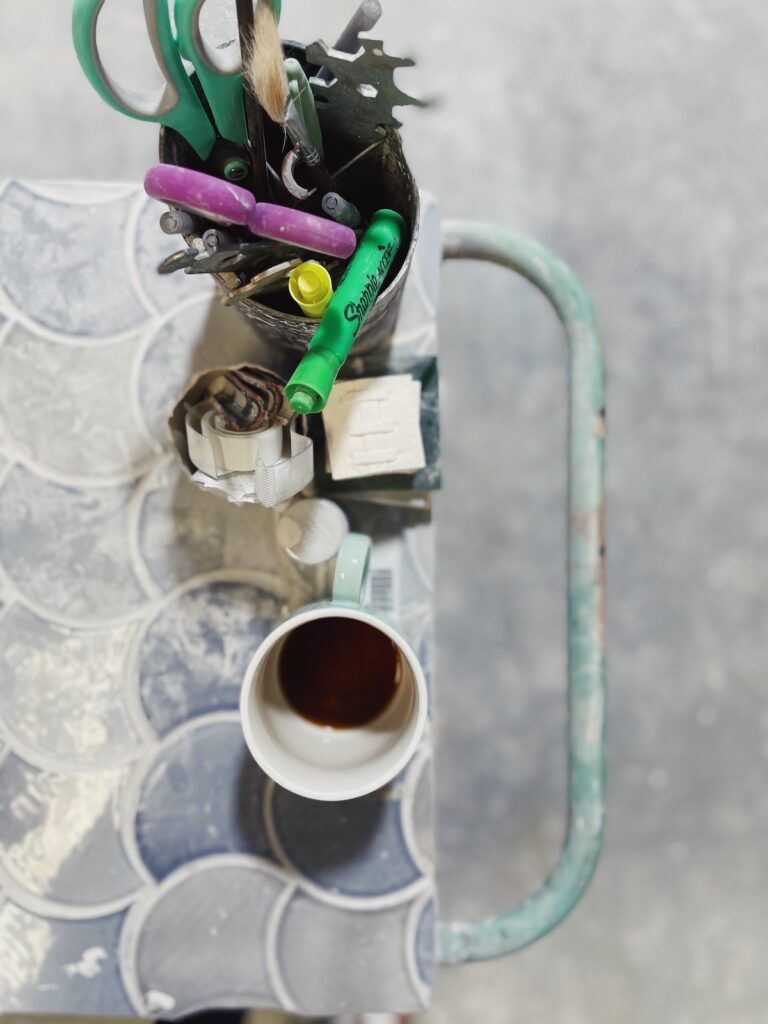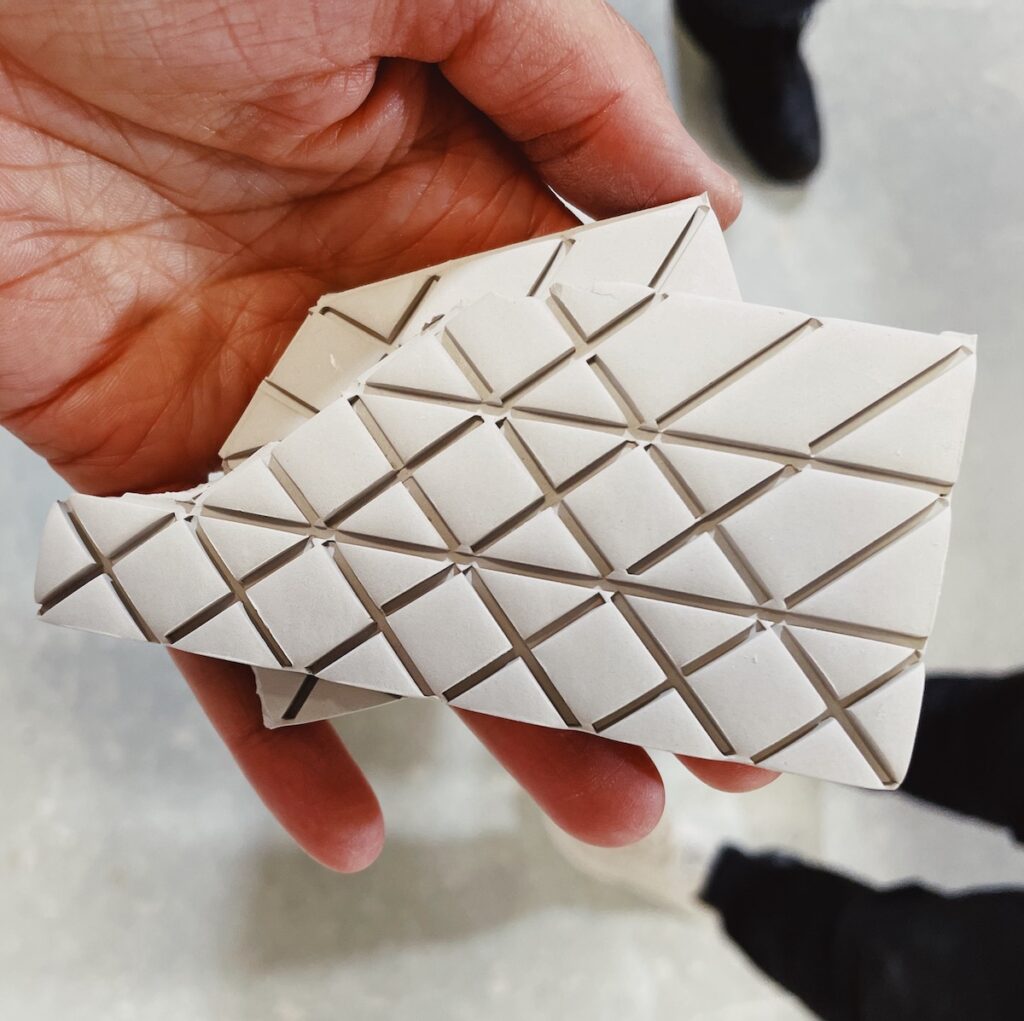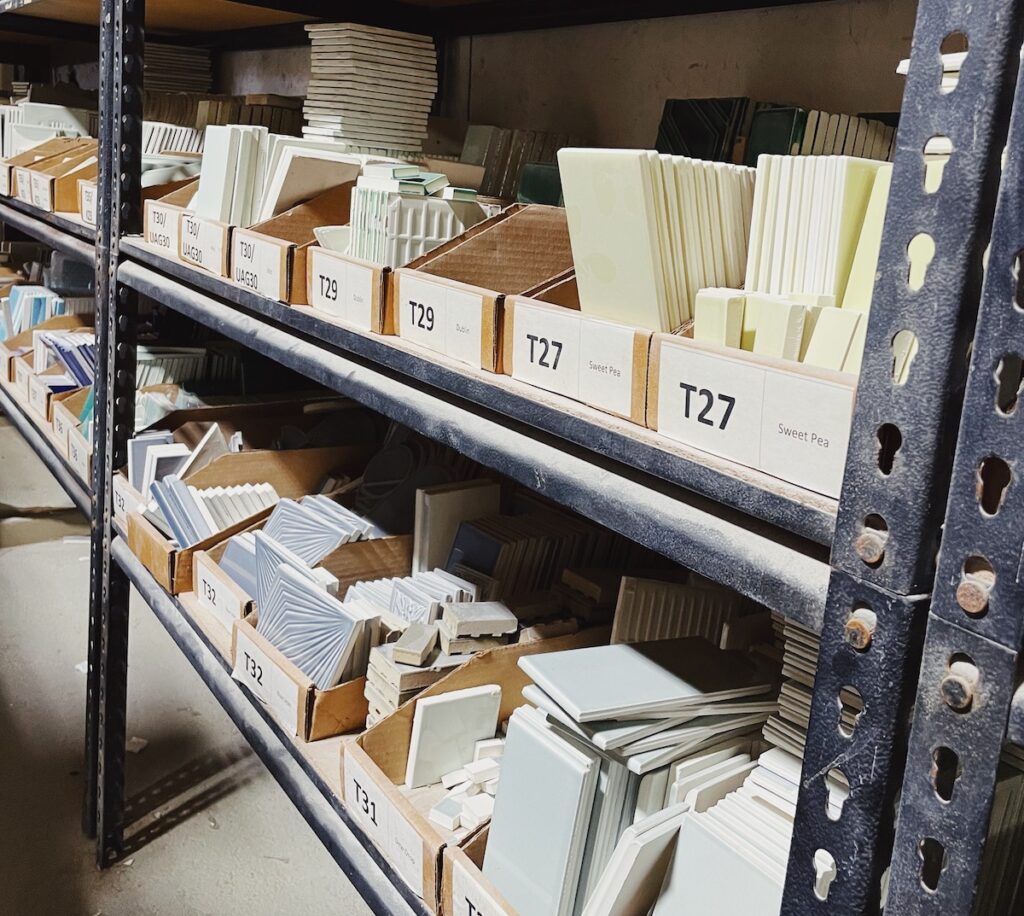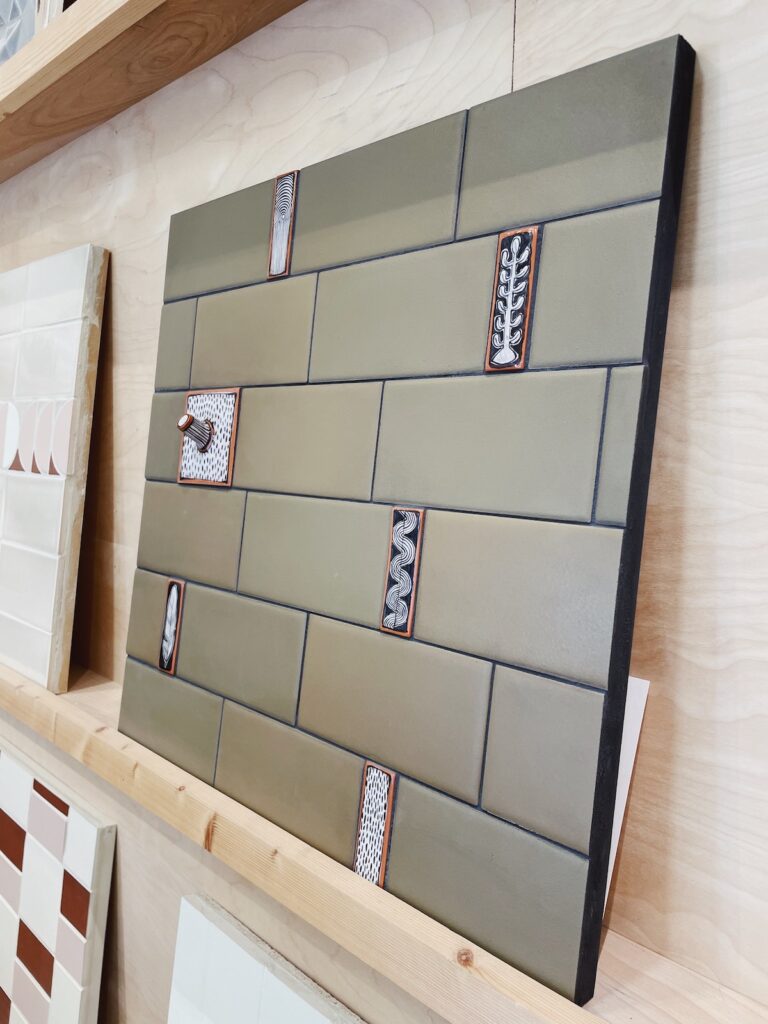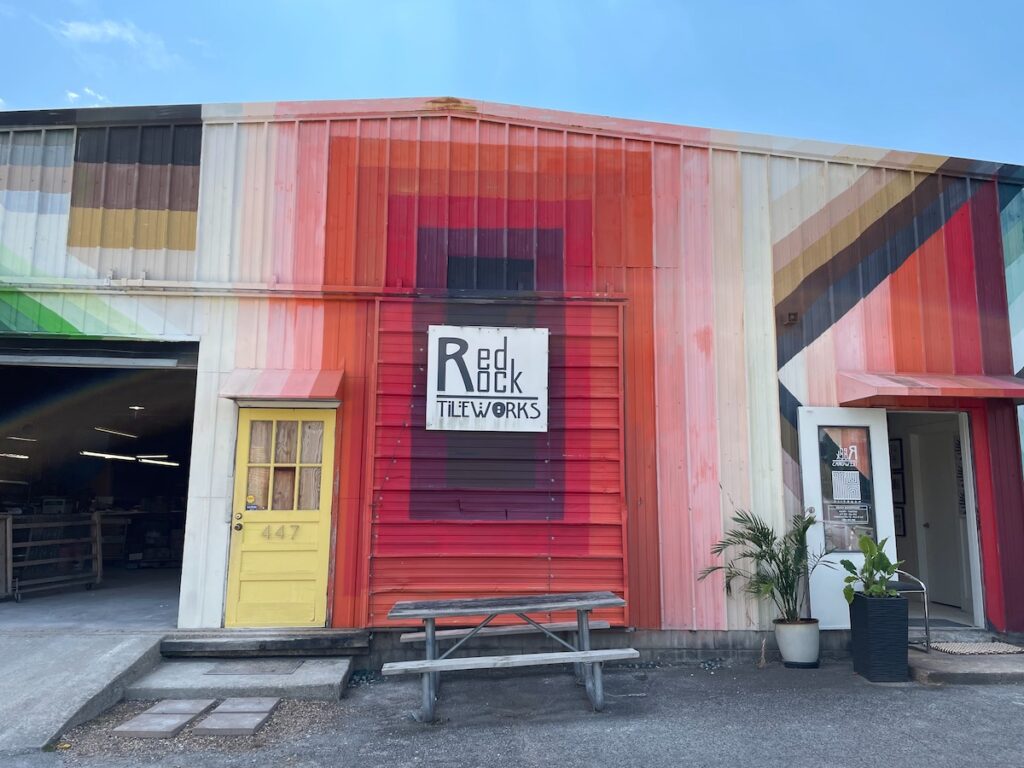It’s a warm late-September morning in Nashville, and I’m standing outside the brightly painted facade of Red Rock Tileworks. I’m waiting for my indie interior design friend Kimberly. Kimberly is the principal and designer at Kimberly Kelly Interior Design, based in Franklin, TN. Today, we’re touring the Red Rock Tileworks facility, tucked away in an industrial area southeast of downtown, for an inside look at how their gorgeous tile is handmade right here in Nashville. A small group of creative people brought together by Owner and Founder Lindsay Sheets turn blocks of raw clay into colorful masterpieces.
Red Rock sales and order aficionado graciously guided Kimberly and me, Caitlin Pearson, through the tile creation process, which transported me back to middle school art class. The open-air space is meticulously organized, with workstations aligned to the flow of the tile creation process. We start at the formation station, manned by one person who rolls raw clay into sheets, cuts them into the appropriate shape, and stamps the imprinted design. Afterward, the tiles are placed on racks where they spend several days drying. A large kiln, where the first firing occurs, is centered at the back of the building. The kiln serves two purposes during the winter months: firing the tiles and heating the building.
As we walk through the building inspecting each workstation, it’s clear that every person is invested in creating high-quality tiles with the utmost integrity. Every individual tile is hand-inspected multiple times throughout the production process, from before the first firing and after the last. The process is well organized, but not without fun. I can tell the team is like family, and they’re all invested in creating high-quality tiles. No corners are cut in this process.
Sheets has incorporated sustainable solutions at every turn in Red Rock’s tile-making operation. The clay used to craft Red Rocks tiles comes from Tennessee mines, reducing the distance the clay must travel to the facility. Fun fact: Today, 90% of U.S. tile includes clay from Tennessee. Salvaged materials were used to fashion a drying room. Upcycled items, like Home Depot buckets, a shower stall, and racks of bread trays, are given a second life through repurposing. The bucks are ferried back and forth between the workshop and the glaze engineer who handcrafts the tile colors. The shower stall acts as a glazing booth, and the bread trays store tile waiting to be glazed and fired. Recycled water, collected from the production processes and the showroom, is filled and reused, creating an almost closed-loop water system. Accidents happen, so when tiles break or are misshapen, they’re ground down and used to make new tiles rather than being thrown away. Another strategy that helps minimize waste is the sale section of their website. If a batch of tile doesn’t meet a customer’s expectations or isn’t quite what they expected, they sell it at a discounted rate online. It’s a lovely way of creating a second opportunity for the tiles to be used. Sheets has thought of everything, learning as she’s gone and adjusting where necessary.
While you can expect to find the mainstays of tile like crisp white subway tile, Red Rock also produces gorgeously designed pieces through artist collaboration and employee ingenuity. The atmosphere at Red Rock is one of collaboration, empowerment, art, and appreciation of each other and the Earth. Red Rock Tileworks proves that caring for the environment and creating a successful business can coexist harmoniously.
